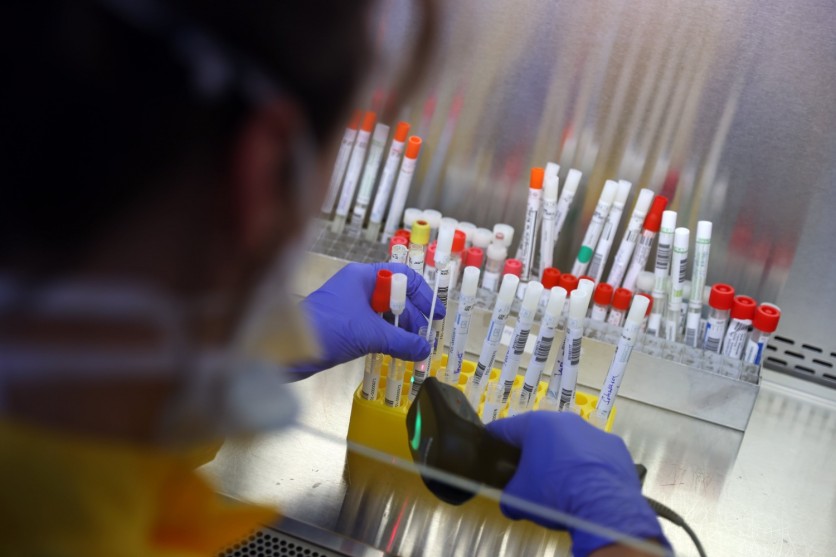As the new coronavirus continues to spread, wreaking havoc on the worldwide economy, both governments and drugmakers around the world are searching for treatments and vaccines to stop the disease in its tracks. Scientists are hopeful that treatments and vaccines are on the way. However, they warn against promises of a brief fix.

ALSO READ : [CORONAVIRUS CURE FOUND] Coronavirus Vaccine Begins Testing Soon! Could This be The End to The Pandemic?
Repurposing existing medicines could 'possibly' fight coronavirus
The current attention is on repurposing existing medicines being redeveloped for different illnesses to help combat the coronavirus, possibly. Although these medications are already approved for use, they will no longer work well because they were no longer designed with the coronavirus in mind.
Makoto Ujike, associate professor of virology at Nippon Veterinary and Life Science University in western Tokyo, told Nikkei using repurposed drugs is like grabbing a stick, as opposed to a gun, to fight with the virus.
"It's better than fighting with your bare hands, but it shouldn't be expected to have a dramatic effect," Ujike said.
Japan's Prime Minister Shinzo Abe said Saturday that clinical studies are underway on four medicines. He was referring to the flu medicinal drug Avigan; Remdesivir, an ebola drug; bronchial asthma treatment Alvesco, and HIV drug Kaletra. Abe also tapped on the pancreatitis remedy Futian, developed by Tokyo-based Torii Pharmaceutical, saying it'll additionally be put through scientific trials.
Remdesivir and Kaletra are among the four promising capsules mentioned by using the World Health Organization in the remedy of the coronavirus.
Medications will depend on patient
The United States is working with Japan, South Korea, and Singapore on clinical testing for Remdesivir, which was advanced by U.S. Drugmaker Gilead Sciences. International cooperation will generate more information about the drug's efficacy, which differs depending on sufferers' ethnicity and is used otherwise from other countries.
The coronavirus has sickened more than 160,000 people and resulted in more than 3,000 deaths in the U.S., making the country one of the largest epicenters of the global pandemic.
"The best thing Japan can do for the U.S. is to share as much information about Avigan as possible, including clinical trial data," said Yasuhiro Kanatani, a professor of pharmacology at Tokai University.
Fujifilm, the maker of Avigan, says it's going to begin scientific trials this week and is hoping to grow production. Some studies have previously observed that the drug may purpose side consequences such as fetal deaths or deformities. If Avigan and other medicines are approved to cure the COVID-19 virus, Kanatani said medical practitioners will have options to choose from, depending on the patient's circumstances.
Among different Japanese organizations, Takeda Pharmaceutical is developing a new drug by using antibodies taken from sufferers who've recovered from COVID-19.
Repurposing medications is much faster, but there's a catch
Repurposing current medicinal drugs is much quicker than developing them from scratch. Still, experts say the reinvented drugs may take at least a year before it would be considered safe and effective for patients.
Some also warn that hopes for finding an effective treatment quick are overblown. Recent developments support the direction from clinical trials to a cure will be bumpy.
Scientists also are trying to repurpose treatment plans for inflammatory conditions. In particular, scientists are eyeing rheumatoid arthritis drug Kevzara by Regeneron and Sanofi that cures an acute respiratory infection in severely ill patients. The drugmakers are starting trials inside the U.S. and other hard-hit countries.
Kaletra, a combination medication for the treatment and prevention of HIV/AIDS, was classified as an ineffective medication for coronavirus, Chinese researchers wrote in the New England Journal of Medicine on Mar. 18.
Drugs that display promise in laboratory experiments or animal tests regularly prove useless in scientific trials in humans, according to Ujike, the virologist. "It is fine to hear about so many potential medications, but they need to be examined cautiously for effectiveness," he said.
Scientists say the excellent defense against viral outbreaks is vaccination. However, they agree that growing a vaccine is difficult, expensive, and time- consuming. The process can take a year or more, they added. Vaccines are typically made by using culturing viruses that have been deliberately weakened by removing particular genes from their DNA or RNA.
Vaccine research is on its way
Research on a vaccine is already underway at large drug groups, which include U.S. Drugmaker Johnson & Johnson and Sanofi of France. Japanese organizations are also on the hunt, along with Mitsubishi Tanabe Pharma by its Canadian subsidiary Medicago, and Tokyo-based Irom Group in Shanghai.
Dr. Takeshi Kasai, regional director for the western Pacific at the World Health Organization, said Tuesday that there are now more than 50 possible vaccines for COVID-19. Scientific trials for remedies are ongoing, he added. Kasai stated some experimental vaccines had moved as far as human trials.
![Apple Watch Series 10 [GPS 42mm]](https://d.techtimes.com/en/full/453899/apple-watch-series-10-gps-42mm.jpg?w=184&h=103&f=9fb3c2ea2db928c663d1d2eadbcb3e52)



